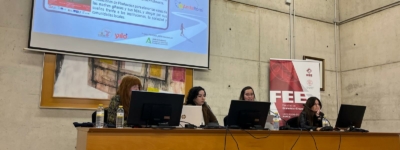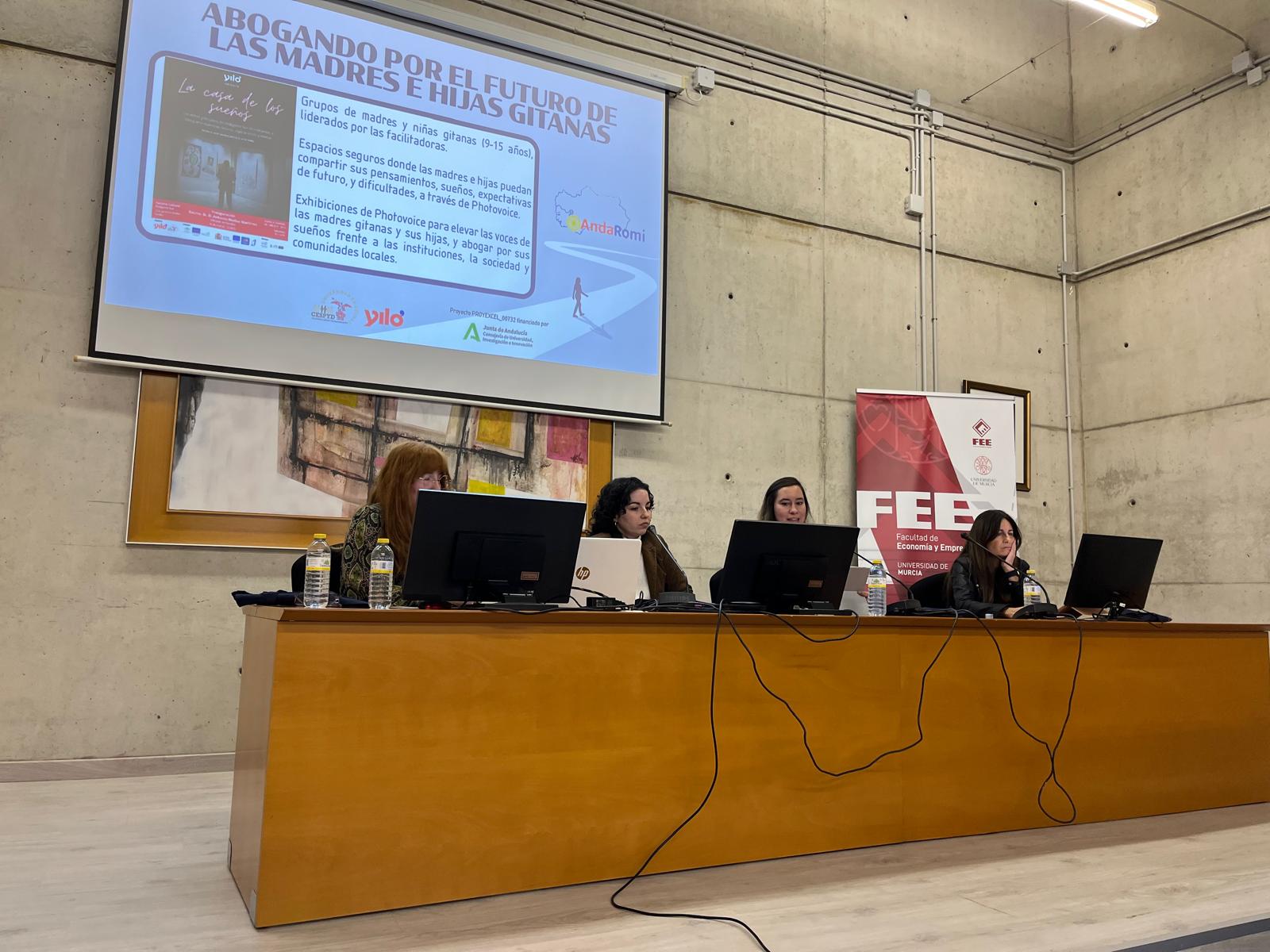
Noticias
CESPYD participates in the VII Action-Research Conference with Roma Communities
On December 12th 2024, CESPYD members Valeria Terán-Tinedo and Belén Soto-Ponce participated in the panel “Digital Inclusion and Socio-Labor Integration of the Roma Population” at the VII Action-Research Conference with Roma Communities, organized by the Observatory of Social Exclusion at the University of Murcia.
Valeria Terán-Tinedo focused on the crucial role of digitalization and socio-labor policies centered on entrepreneurship as key drivers to transform the conditions of labor precariousness and discrimination faced by Roma women. She highlighted how CESPYD-led projects address these challenges from an innovative perspective and presented emerging findings from the NEXTROM Project in the area of employment, including:
- Barriers and opportunities that digitalization represents for Roma employment.
- How digitalization can dignify traditional occupations such as craftsmanship and street vending while expanding their markets through digital platforms.
- The potential for new generations of Roma to lead emerging professions through digital tools.
Belén Soto-Ponce, on the other hand, emphasized the importance of redefining and dignifying care work, traditionally carried out by Roma women and girls under precarious and unrecognized conditions. In this area, the AndaRomi and RomaCare projects are:
- Creating safe spaces for Roma mothers and daughters, where they can share thoughts and dreams, strengthening their intergenerational bonds.
- Promoting the co-creation of knowledge to design strategies led by Roma women themselves.
- Exploring self-employment niches such as intergenerational care networks, home services, and the digitalization of local businesses.
The digitalization of entrepreneurship and the inclusion of new employment niches represent a critical shift to foster the recognition, remuneration, and dignity of the work carried out by Roma women. These initiatives reinforce the importance of advocating for public policies that support self-employment, training, and leadership for Roma women and girls to occupy new roles and spaces in different social spheres, as well as the transformative role of digitalization in the socio-labor inclusion of the Roma population.

